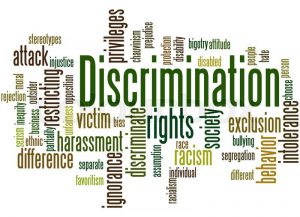Employment Discrimination Based on Perceived Status
Sometimes, an employer makes adverse employment decisions based on perceived membership in a protected class. For example, a job applicant may be rejected because he is believed to be Muslim, even if he is not. Or, an employee with an altered gait may be denied a promotion because of her perceived need for job accommodation. These adverse employment actions may be illegal.
Some federal and state laws directly address perceived status. For example:
- The Americans with Disabilities Act (ADA) prohibits discrimination due to perceived disability.
- California law protects workers against discrimination based on perceived race, religion, color, national origin, ancestry, disability, genetic information, marital status, sex, age, sexual orientation, or military/veteran status.
- New York State’s Human Rights Law bans discrimination based on perceived sexual orientation.
- New York City’s Human Rights Law goes even further and prohibits perceived discrimination based on age, race, creed, color, national origin, gender, disability, marital and partnership status, caregiver status, sexual orientation, or citizenship.
Unfortunately, many federal and state laws do not directly address discrimination based on perceived status. This has led to confusion and inconsistent legal interpretations.
Perceived Disability and the Americans with Disabilities Act
The Americans with Disabilities Act (ADA) specifically prohibits discrimination against people with perceived disabilities. The statute recognizes that employers sometimes assume that an individual with a physical or mental disability requires unnecessary accommodations. The ADA states: 
An individual meets the requirement of “being regarded as having such an impairment” if the individual establishes that he or she has been subjected to an action prohibited under this chapter because of an actual or perceived physical or mental impairment whether or not the impairment limits or is perceived to limit a major life activity.
If you have been the victim of discrimination due to a perceived disability, you should contact the EEOC or an employment lawyer.
Is Employment Discrimination Illegal Based on Other Perceived Statuses Illegal?
Unlike the ADA, other federal laws do not specifically prohibit discrimination based on perceived gender, race, age, national identity, or religion. Instead, the Civil Rights Act prohibits discrimination “because of [an] individual’s race, color, religion, sex, or national origin.” The Age Discrimination in Employment Act (ADEA) similarly bans discrimination because of an individual’s age. There is absolutely no discussion of perceived status in these laws.
When a statute or law fails to clearly address an issue or protection, individual judges and courts are left to fill the gap. Typically, judges evaluate the language of the statute, legislative intent, and other factors to decide how the law should be applied. Unfortunately, this case-by-case and jurisdiction-by-jurisdiction approach may lead to inconsistency.
In cases of discrimination due to perceived status, different federal courts have arrived at different decisions. For example:
- The 3rd and 11th Circuits have recognized that anti-discrimination laws covers perceived members of a protected class. (Jones v. UPS Ground Freight (11th Cir. 2012); Fogleman v. Mercy Hospital, Inc. (3d Cir. 2002).
- However, many federal district courts have rejected claims based on perceived status. (For example, Burrage v. FedEx Freight, Inc. (N.D. Ohio Mar. 29, 2012); Butler v. Potter (E.D. Tenn. 2004).)
- But, the Federal District of Hawaii has recognized protected the rights of perceived members of a class. (Henao v. Wyndham Vacation Resorts (D. Hawaii, 2013).)
While the EEOC’s Compliance Manual prohibits discrimination based on perceived membership in a protected class, courts have not always deferred to this opinion.
It may seem counterintuitive (and against public policy) to allow incorrect categorization of an employee as a defense. Unfortunately, the Civil Rights Act and the ADEA’s lack of clarity have led to this inconsistent application of the law.
Pursuing a discrimination claim against an employer is complicated because laws vary depending on where and when you file your claim. In a perceived status case, your rights may vary dramatically based on your location.
Do I Need an Attorney?
An employment lawyer will help you choose the correct law and help with the filing deadlines specific to your claim. You should also consider legal representation if you have been offered a severance package or waiver.

Comments